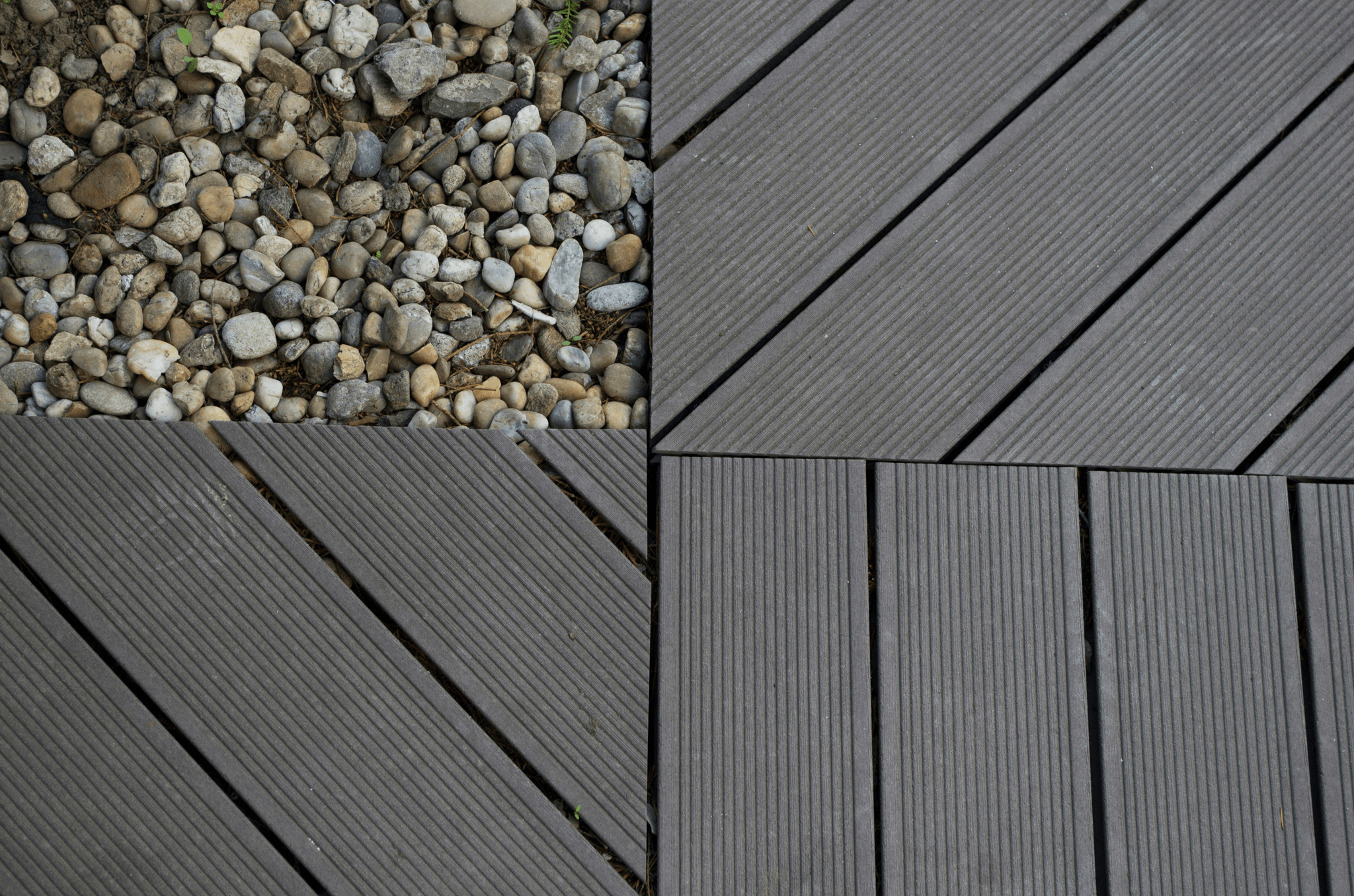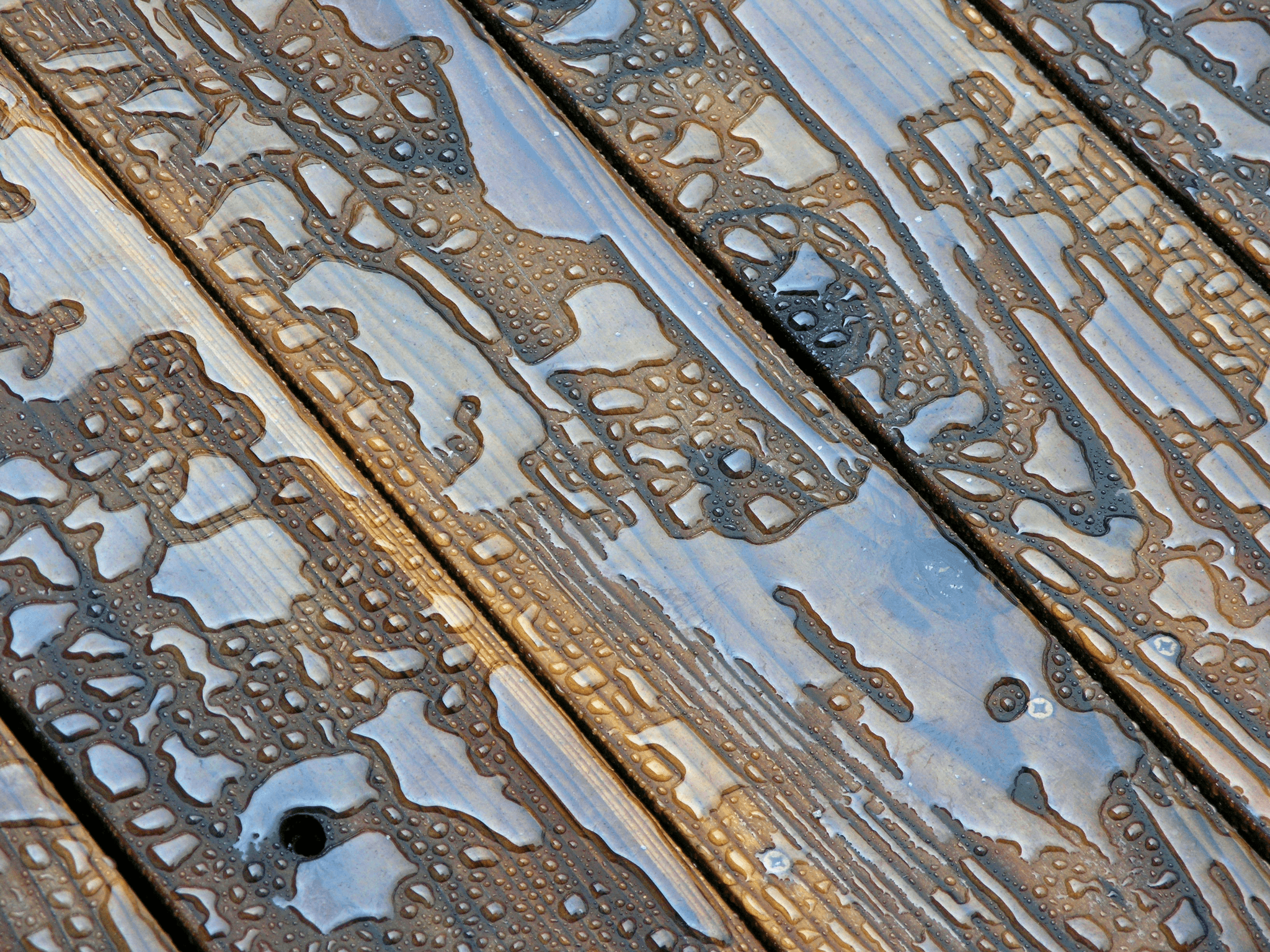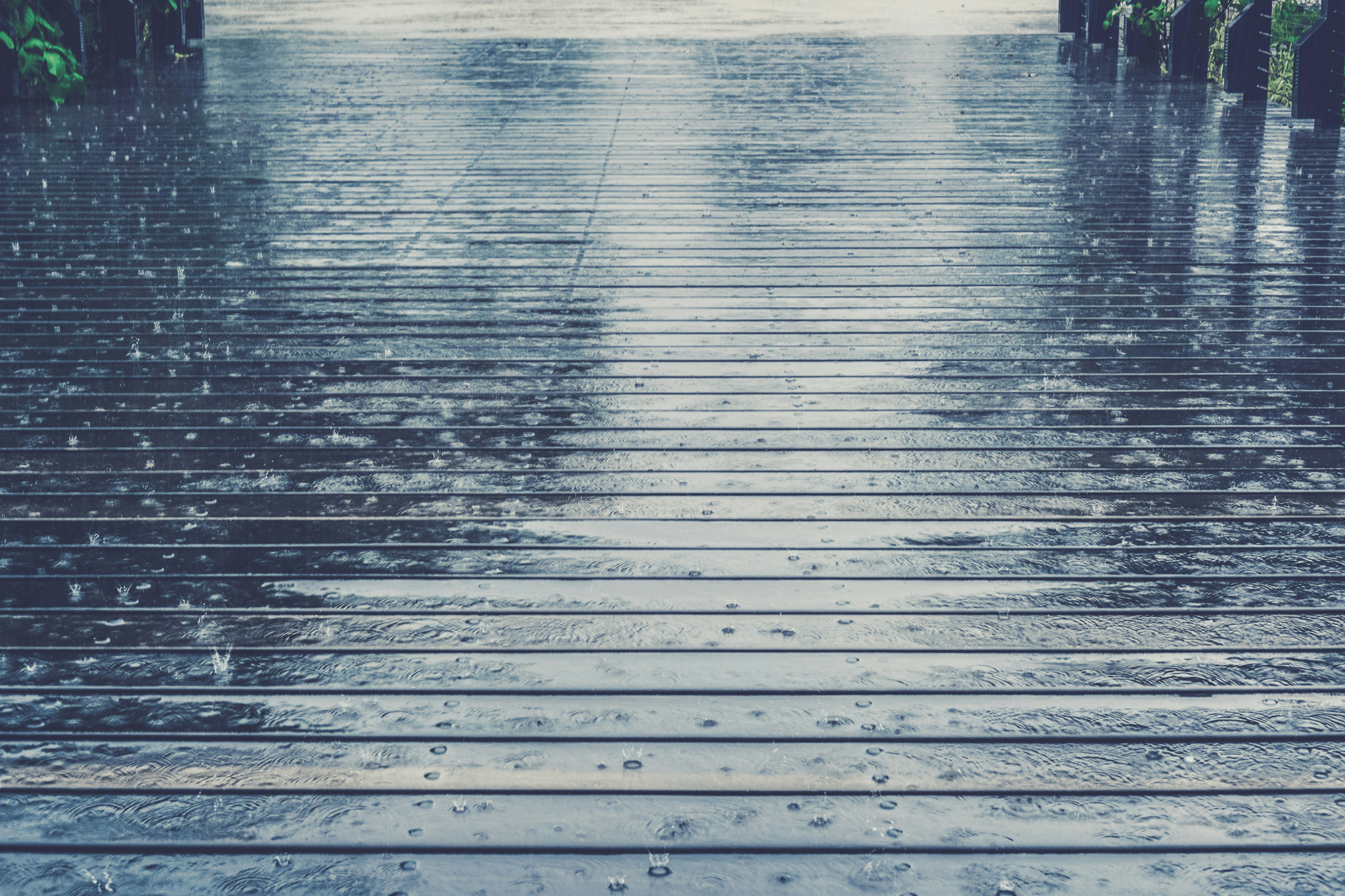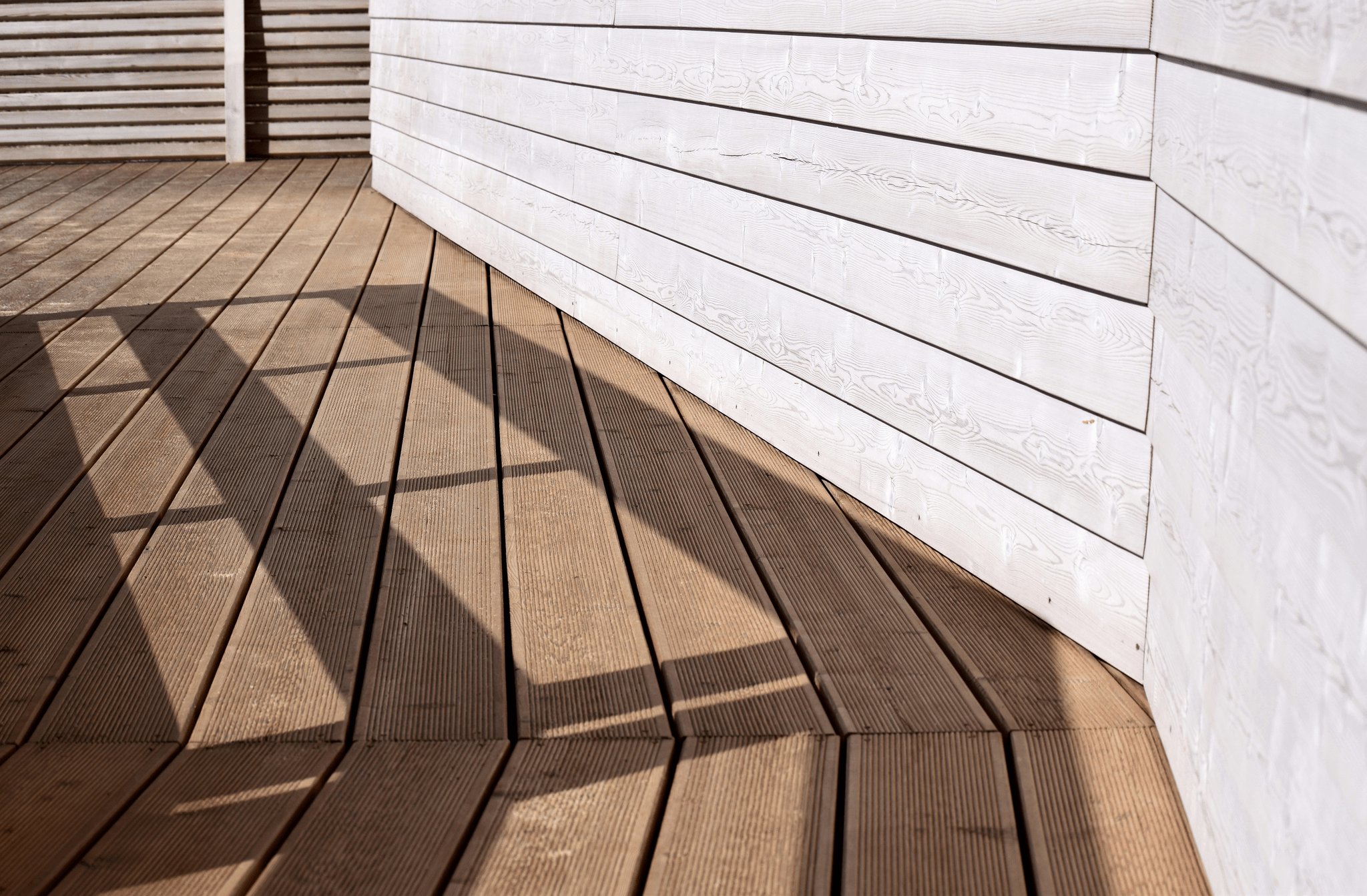Introduction
This innovative material, made primarily from a mix of wood fibers and recycled plastic, offers the beauty of traditional wood without the constant upkeep. However, with its growing use comes an important question: is composite decking slippery when wet?
The Growing Popularity of Composite Decking
The appeal of composite decking lies in its ability to provide an attractive, long-lasting surface that can withstand the elements without warping or splintering like traditional wood. Homeowners are increasingly drawn to this option for its eco-friendly credentials and ease of maintenance—no more painting or sealing! As more people discover the benefits of deck composite decking, it's essential to address concerns about safety and performance, especially when wet.
Understanding the Slippery Issue
While many love their new composite wood decks, there’s been ongoing debate about whether these surfaces become dangerously slippery when wet. Factors such as moisture retention and surface texture can significantly influence traction levels on composite decking during rain or after cleaning. Understanding these nuances helps homeowners make informed decisions about their outdoor spaces and ensures they enjoy their deck without worrying about slips and falls.
What Homeowners Need to Know
Before investing in low price composite decking options, it's crucial for homeowners to consider not just aesthetics but also safety features like slip resistance ratings. Knowing how different brands perform under wet conditions can save you from potential accidents down the line. As we dive deeper into this topic throughout our exploration of composite decking, we’ll uncover tips for maintaining a safe outdoor environment while maximizing the enjoyment of your beautiful new deck.
The Science Behind Composite Decking

Composite decking is engineered from a blend of wood fibers and recycled plastic, which gives it the durability of traditional wood while minimizing maintenance needs. This unique combination means that homeowners can enjoy the aesthetic appeal of wood without the constant upkeep, but it also raises questions about how these materials behave in wet conditions.
Material Composition and Design
The material composition of composite decking plays a crucial role in its performance, especially regarding slip resistance. Most composite boards consist of approximately 50% wood fibers and 50% plastic, resulting in a product that is resistant to rot and decay while providing an attractive finish.
How Moisture Affects Composite Decking
Moisture can significantly affect how slippery a deck composite decking surface becomes when wet. When water sits on the surface or saturates the material, it can create a slick layer that increases the risk of slips and falls. Understanding this behavior is vital for homeowners who want to enjoy their outdoor spaces safely; regular maintenance such as cleaning debris and applying anti-slip treatments can mitigate these risks effectively.
Comparing Composite Wood to Traditional Wood
When comparing composite wood to traditional wood, several factors come into play regarding safety and usability in wet conditions. Traditional wood decks are prone to splintering and warping due to moisture exposure, which can make them more dangerous when wet compared to some high-quality composite options designed with slip resistance in mind. While traditional woods may have their charm, many homeowners are turning towards PVC decking or advanced composites for their durability and lower maintenance requirements—especially considering how slippery they might become during rain or snow.
Real-World Experiences: Is Composite Decking Slippery When Wet?

When it comes to composite decking, many homeowners have shared their experiences regarding its slipperiness in wet conditions. The question is composite decking slippery when wet? often arises, as safety is a top concern for families looking to enjoy their outdoor spaces. With various brands and materials on the market, understanding real-world feedback can offer valuable insights into this issue.
Homeowner Testimonials
Homeowners across the country have weighed in on whether composite decking is slippery when wet, and opinions vary widely. Some users rave about the slip-resistant features of their chosen composite wood, emphasizing how certain brands have designed surfaces specifically to combat this issue. Others, however, recount moments of unexpected slips and falls after rainstorms or during morning dew, leading them to seek out low price composite decking options that promise better performance.
For instance, one homeowner noted that their PVC decking performed admirably even after heavy rain, while another lamented that their cheaper alternative left them feeling uneasy during wet conditions. These testimonials highlight the importance of selecting the right type of deck composite decking based on individual needs and local weather patterns. Ultimately, personal experiences shed light on how different products can perform under similar circumstances.
Temperature and Weather Variables
The slipperiness of composite decking can also be influenced by temperature and weather variables that homeowners might not initially consider. For example, decks exposed to direct sunlight may dry faster than those shaded by trees or adjacent structures. This means that even if a specific brand is known for being less slippery when wet, factors like humidity levels or surrounding temperatures can drastically affect performance.
Moreover, during colder months or in regions with frequent rain showers, moisture accumulation becomes more pronounced on deck surfaces made from traditional wood versus advanced composite materials designed for durability. Homeowners should pay attention to these environmental factors when evaluating whether is composite decking slippery when wet applies to their specific situation. By understanding how weather impacts slip resistance, they can make informed decisions about maintenance practices and safety measures.
Effects of Different Composite Brands
Not all composite decking products are created equal; variations between brands can significantly impact how slippery a deck becomes when wet. Some manufacturers focus heavily on enhancing surface texture through innovative designs aimed at improving grip underfoot—these are often marketed as slip-resistant solutions for outdoor spaces where water exposure is common. In contrast, other brands may prioritize aesthetics over functionality and thus may not perform as well in rainy conditions.
Homeowners searching for composite decking near me should take note of these differences before making a purchase decision; researching product reviews and comparisons among various brands will help identify which options provide better slip resistance ratings in real-world applications. Additionally, some companies offer warranties or satisfaction guarantees that reflect confidence in their product's performance against moisture-related issues like slipperiness—this could be an important factor for those considering long-term investments in deck materials.
Safety Concerns with Slippery Decks

When it comes to enjoying your outdoor space, safety should always be a top priority, especially regarding composite decking. Homeowners often wonder, Is composite decking slippery when wet? and the answer can vary based on several factors. Understanding how to prevent accidents and maintain a safe environment is essential for anyone considering deck composite decking.
Preventing Accidents on Wet Decks
To minimize the risk of slipping on wet composite decking, it's crucial to take proactive measures. Installing non-slip mats or using slip-resistant coatings can significantly enhance traction on your deck. Additionally, educating family members and guests about the potential hazards of walking on wet surfaces will help keep everyone safe.
Another effective strategy is to ensure that your composite wood deck is designed with a textured surface that naturally provides better grip. Regularly checking for any wear or damage in these areas can help identify potential slip hazards before they become an issue. Ultimately, being vigilant about safety will ensure your outdoor space remains enjoyable regardless of weather conditions.
Managing Slippery Areas with Proper Drainage
Proper drainage is key to managing slippery areas on your composite decking. If water tends to pool in certain spots, it can create hazardous conditions that make you question whether is composite decking slippery when wet? To combat this issue, consider installing drainage systems or sloped designs that direct water away from high-traffic areas.
Regular maintenance of gutters and downspouts also plays a significant role in preventing water accumulation near your deck composite decking. By keeping these systems clear and functional, you reduce the chances of creating slippery surfaces during rainstorms or snowmelts. Remember: effective drainage not only protects against slips but also prolongs the life of your low price composite decking.
Best Practices for Deck Maintenance
Maintaining your PVC decking is essential for ensuring its longevity and safety features remain intact over time. Regular cleaning helps prevent mold and mildew buildup, which can contribute to slick surfaces when dampened by rain or dew. Use a gentle cleaner specifically designed for composite materials alongside a soft brush to keep your deck looking pristine.
In addition to cleaning, inspecting your deck periodically for signs of wear or damage can help you catch potential problems early before they lead to unsafe conditions. Look out for loose boards or cracked surfaces that could exacerbate slipping risks during wet weather conditions. Following these best practices will keep both you and your guests safe while maximizing the enjoyment of your outdoor living space.
Choosing the Right Composite Decking

Selecting the right composite decking can feel like navigating a maze, especially with so many options available. As homeowners seek to create beautiful outdoor spaces, understanding what makes a deck composite decking suitable is crucial. From pricing to performance ratings, this section will guide you through making an informed choice.
Low Price Composite Decking OptionMany brands offer budget-friendly alternatives that still provide decent durability and aesthetic appeal. However, it's essential to remember that lower prices may sometimes come at the expense of quality; thus, thorough research is vital before diving into your purchase.
While these low-cost options might not boast all the bells and whistles of premium composite wood products, they can still deliver satisfactory performance for everyday use. Just be sure to check for slip resistance ratings if you’re concerned about whether composite decking is slippery when wet. After all, nobody wants their outdoor oasis turning into a slip-and-slide!
Durability and Slip Resistance Ratings
Durability is one of the most significant factors when choosing between different types of composite decking materials. Not only do you want your deck to withstand the elements over time, but you also need it to be safe for family and friends alike—especially during rainy days when you're questioning if composite decking is slippery when wet. Look for products that provide clear slip resistance ratings; these will help ensure you're making a smart investment.
Many manufacturers now publish detailed specifications on their products’ durability and slip resistance ratings, allowing homeowners to compare options effectively. For instance, some PVC decking solutions are designed specifically with textured surfaces that enhance grip in wet conditions—an essential feature for those living in rainy climates! Remember that higher durability often translates into better long-term value; don’t skimp on quality just because something looks appealing at first glance.
Finding Composite Decking Near Me
Once you've narrowed down your choices based on price and performance ratings, it's time to locate where you can buy your new deck composite decking materials! Searching online for composite decking near me can yield a treasure trove of local suppliers who carry various brands and styles tailored to fit your needs. Visiting showrooms allows you not only to see samples firsthand but also speak with knowledgeable staff about any concerns regarding whether composite decking is slippery when wet.
Additionally, don't overlook local home improvement stores or lumber yards—they often have competitive pricing on popular brands of composite wood products! They might even offer seasonal discounts or promotions worth checking out as you finalize your decision on which type of composite decking best suits your home’s aesthetic while ensuring safety from slips and falls during wetter months.
Innovations in Composite Decking Technology

The world of composite decking is continuously evolving, with innovations that enhance both performance and aesthetics. Homeowners are increasingly interested in understanding whether composite decking is slippery when wet and what advancements can mitigate this issue. As technology progresses, the options available for deck composite decking become more appealing, combining functionality with style.
Advances in Surface Texturing
One of the most significant advancements in composite decking technology is the development of advanced surface texturing techniques. These textures are designed to improve grip and reduce slipperiness, addressing concerns about whether composite decking is slippery when wet. Manufacturers now offer various finishes that not only enhance safety but also add visual appeal to your outdoor spaces.
With these new surface designs, many homeowners have reported a marked improvement in slip resistance compared to traditional smooth surfaces. The textured surfaces create channels that help water drain away quickly, further reducing the chances of slipping on wet composite wood. If you're searching for low price composite decking options, keep an eye out for brands incorporating these innovative textures into their products.
Eco-Friendly Alternatives and Their Performance
As environmental awareness grows, so does the demand for eco-friendly alternatives in building materials like PVC decking and composite wood products. Many manufacturers are now producing sustainable composite decking made from recycled materials while maintaining high performance standards. These eco-friendly options often have impressive slip resistance ratings, making them a great choice for homeowners concerned about safety on wet surfaces.
The Future of PVC Decking
The future of PVC decking looks promising as manufacturers continue to innovate and improve their products' performance characteristics. With advancements in material science, modern PVC decks are becoming lighter yet more durable while offering improved slip resistance capabilities that address concerns over whether composite decking is slippery when wet. Homeowners can expect even more options that blend aesthetics with functionality as technology advances.
Moreover, new formulations aim to enhance UV resistance and weather durability without compromising on style or safety features like slip-resistant surfaces. As consumers seek out low price composite decking solutions that don't skimp on quality or safety features, the industry will likely respond by providing an array of choices tailored to meet diverse needs and preferences. Keeping an eye on emerging trends will help you make informed decisions about your next deck project.
Conclusion
In conclusion, the conversation around composite decking often circles back to a pressing question: is composite decking slippery when wet? As homeowners weigh their options, it's crucial to consider both the advantages and potential drawbacks of this popular material. With practical solutions and informed choices, you can enjoy your deck without fear of slipping.
Practical Solutions for Wet Composite Decks
To combat the slippery nature of composite wood when wet, there are several practical solutions that homeowners can implement. First and foremost, regular maintenance is key; cleaning your deck composite decking with a broom or hose can help prevent the buildup of algae or mildew that contributes to slipperiness. Additionally, applying anti-slip coatings specifically designed for composite decking can provide an extra layer of safety during those rainy days.
Evaluating Your Composite Decking Options
When it comes to evaluating your composite decking options, factors like durability and slip resistance ratings should be at the forefront of your decision-making process. Not all low price composite decking is created equal; while affordability is important, ensuring that you choose a product with reliable performance characteristics will save you headaches down the line. Researching brands and reading reviews from other homeowners will give you valuable insights into how different types hold up in various weather conditions.
Additionally, take time to explore local suppliers by searching composite decking near me. This not only helps in finding competitive prices but also allows you to see samples in person before making a commitment. Ultimately, investing time in evaluating these factors ensures you'll end up with a deck that meets both aesthetic desires and functional needs.
The Benefits of Choosing Composite Decking Inc
Choosing Composite Decking Inc comes with numerous benefits that extend beyond just aesthetics; it’s about making a long-term investment in your home’s outdoor space. Unlike traditional wood decks which require constant upkeep—think staining and sealing—composite materials are designed for longevity with minimal maintenance required. Plus, many manufacturers now offer eco-friendly PVC decking options made from recycled materials that are both durable and sustainable.
Furthermore, modern advancements in technology have led to innovations such as advanced surface texturing which enhances slip resistance without sacrificing style. Homeowners can enjoy peace of mind knowing they’ve chosen an option that's not only beautiful but also safe for family gatherings or summer barbecues—even if Mother Nature decides to throw some rain into the mix! So next time you're pondering over whether is composite decking slippery when wet, remember there are plenty of solutions available along with an array of benefits waiting for you.
